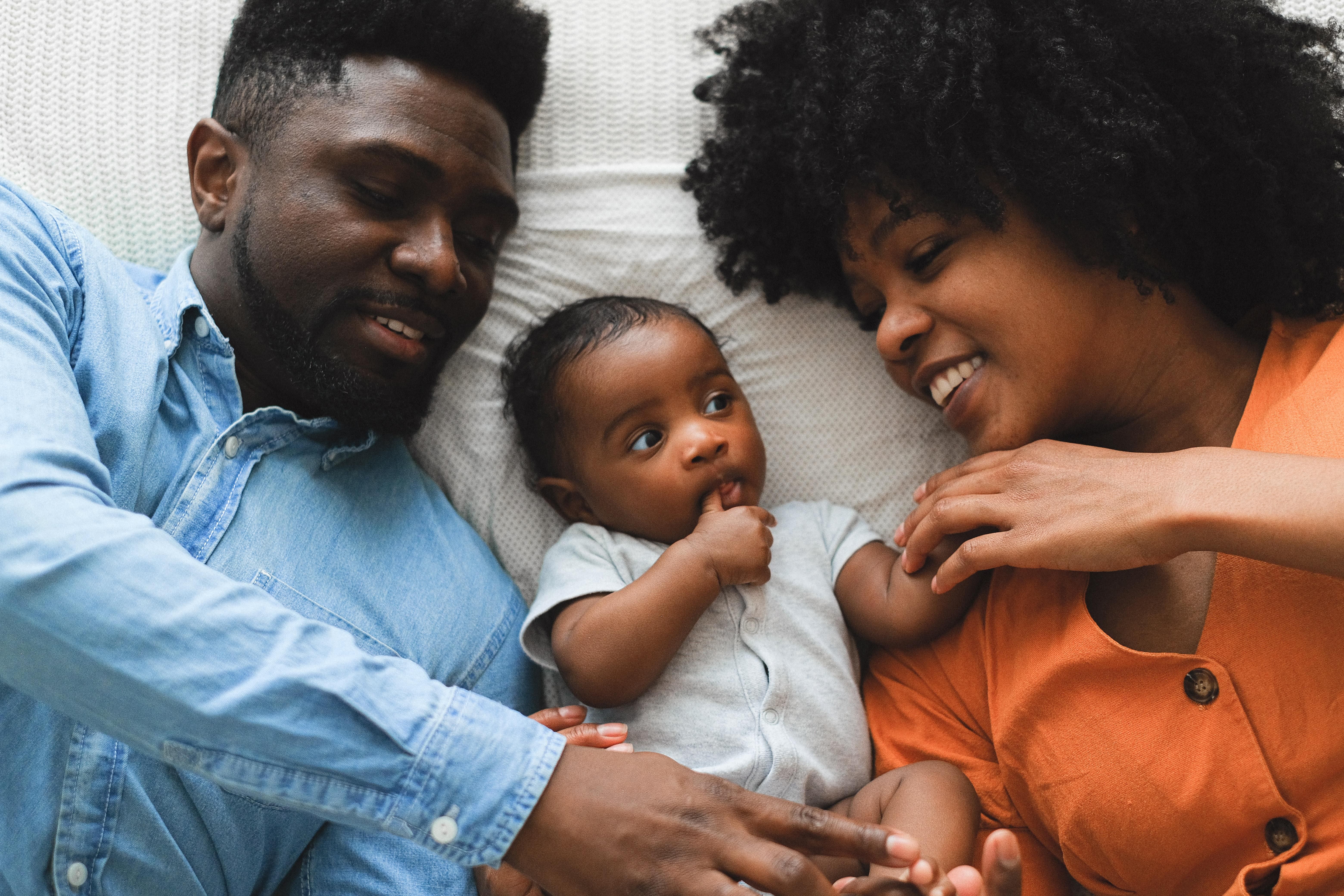It's amazing how fast babies grow and develop in their first year. On average, a newborn's weight will triple, and he or she will grow 10 inches by his or her first birthday! The anticipation and excitement of each new developmental milestone—hearing your baby's first word, watching him or her roll over, crawl or maybe even take a first step—is unmatched. You'll even see glimpses of his or her personality beginning to emerge.
These and other developmental milestones can help parents and pediatricians track a baby's physical and behavioral growth. Children's development and growth is usually broken down into the following areas:
- Gross motor—controlling the head, sitting and walking
- Fine motor—holding a spoon, picking something up between thumb and finger
- Sensory—seeing, hearing, tasting, touching and smelling
- Language and thinking—being able to talk and be understood and understanding what parents and other children say
- Emotional and social—the ability to play with family members and other children
While most babies achieve certain skills and tasks at similar ages, it's important to remember that your baby will develop at his or her own pace. As a parent, you should try not to compare your baby's accomplishments against what your friends' or siblings' infants did and at what ages. It's not unusual for babies to grow in spurts or have slower progress in some areas of development than others. For example, your baby may become fixated on rolling over or standing up, which means he or she may not be as focused on verbal skills.
Your baby's development will be assessed at each well-baby visit. If you have concerns, always talk with your pediatrician. Here is a general list of milestones and when they typically occur (on average).
| Age | Some of the expected milestones |
| 1 month |
|
| 3 months |
|
| 7 months |
|
| 1 year |
|
Source: March of Dimes
Building Your Baby's Social Skills
Encouraging your infant to develop emotional attachments and engage in play is very important to his or her development. You'll quickly find yourself immersed in games from your childhood such as peek-a-boo, patty-cake and itsy-bitsy spider.
You can encourage your baby's social and cognitive development by:
- Showing affection and bonding with your new little one through skin-to-skin contact, breastfeeding and eye contact.
- Talking to and reading to your baby. This is one of the easiest ways to boost your baby's language development.
- Turning on the music. Music can help calm and entertain your baby.
- Arranging play dates and interactions with siblings.
- Having plenty of play time and incorporating toys that help your infant build skills and use his or her imagination. For example, toys that do something when you push a button (the cow says "moo," for example) help to teach cause and effect. Be sure to read the manufacturers' guidelines and labels to be sure toys are suitable for your child's age, and always supervise play time. Accidents happen in a matter of moments. If you're using second-hand toys or hand-me-downs, inspect all the parts for safety.
- Allowing him or her to explore the immediate environment. Be sure to keep only safe objects within your baby's reach.
This chart provides some examples of play that can help promote your baby's development.
| Age | Some examples for how to help your baby develop through play |
| 2 months |
|
| 4 months |
|
| 6 months |
|
| 9–12 months |
|
Source: National library of Medicine; Feigelman S. The first year. In: Kliegman RM, Behrman RE, Jenson HB, Stanton BF, eds. Nelson Textbook of Pediatrics. 18th ed. Philadelphia, Pa: Saunders Elsevier; 2007: chapter 8.
What about TV?
The American Academy of Pediatrics recommends no television viewing for children under age 2, and no more than two hours of daily media exposure for ages 2 and older. Studies show frequent TV-watching can cause behavior, sleep and attention problems. And research on early brain development shows that babies and toddlers need direct interaction with parents and other caregivers for healthy brain growth and the development of appropriate social, emotional, and cognitive skills.
Babies Watch and Learn
Infants and young children learn by example. They often imitate parents and other children, so whether you realize it or not, you're teaching them emotional and social skills from a very young age.
Oh, the joys of parenthood. As your baby approaches his or her first birthday, you'll notice how much he or she has grown and developed along the way, including improved motor skills, better hand-eye coordination, language development and sensory skills.
Questions to Ask My Health Care Professional
As a new parent, you may find the following questions helpful. Remember, there are no stupid questions. It's important to feel comfortable about how best to take care of your baby and keep him or her happy and healthy.
- When should he or she start to crawl and stand up?
- What toys are best for my baby's age?
- Are there signs that I should watch for that would indicate the baby is not developing as expected?


